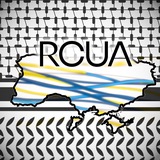group-telegram.com/resist_UAde/2108
Last Update:
*Does international solidarity end at the borders of Ukraine?*
a workshop by Resistance Connections UA (@resist_UAde) as part of the Critical Orientation Weeks at the HU.
Hedwig-Dohm-Haus, Ziegelstraße 5, 10117 Berlin
17.10.2024 at 18:00 (6pm)
On 24.02.2022, Russia launched a full-scale invasion of Ukraine. The consequences for the society of Ukraine have been tragic. Millions have become poorer, millions have been displaced, and millions more have left the country, with 70,000 settling in Berlin.
Since then, the lives of many Ukrainian leftists have also changed radically. Whether they fled the war, went to serve in the army or are simply living under the constant threat, leftists in Ukraine continue their work. They are struggling for dignified conditions for hospital staff in Lviv, for student housing in Kyiv, for decent pay for steel workers in Kryvyi Rih, against fascists in Odesa, to aid women among internally displaced people; the list goes on.
Both German media and Ukrainian state media ignore these struggles, giving an impression that Ukraine is a monolith at war. While Ukraine is united in resisting occupation, it is still a society of social classes. The German Left mostly conforms to this ignorance about Ukraine, and therefore we see relatively few words or acts of solidarity with these struggles. The ongoing transformation of Ukraine into a neoliberal laboratory state at the periphery of western capitalism, means that working people are under pressure from cutbacks, blackouts, and corruption - while fighting against Russia for survival. Ukrainians are tired.
The German Left is missing out on providing needed support for its natural allies in Ukraine, and thereby abandoning workers in Ukraine to both Russian atrocities and western capital.
In this workshop we will learn about social struggles in Ukraine. We will hear from activists from key left organisations such as Social Movement, Solidarity Collectives, Direct Action, as well as journalists who have documented developments over the last decade.
Come to share your experiences and thoughts with us!
Share on Instagram
BY Resistance Connections UA 🇺🇦
Warning: Undefined variable $i in /var/www/group-telegram/post.php on line 260
Share with your friend now:
group-telegram.com/resist_UAde/2108
